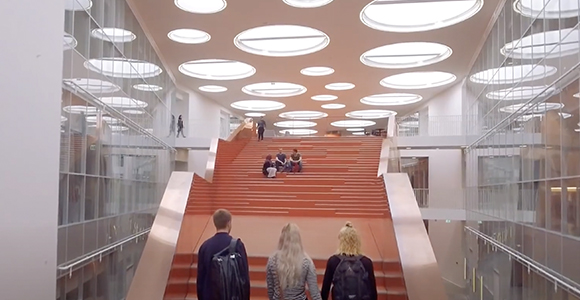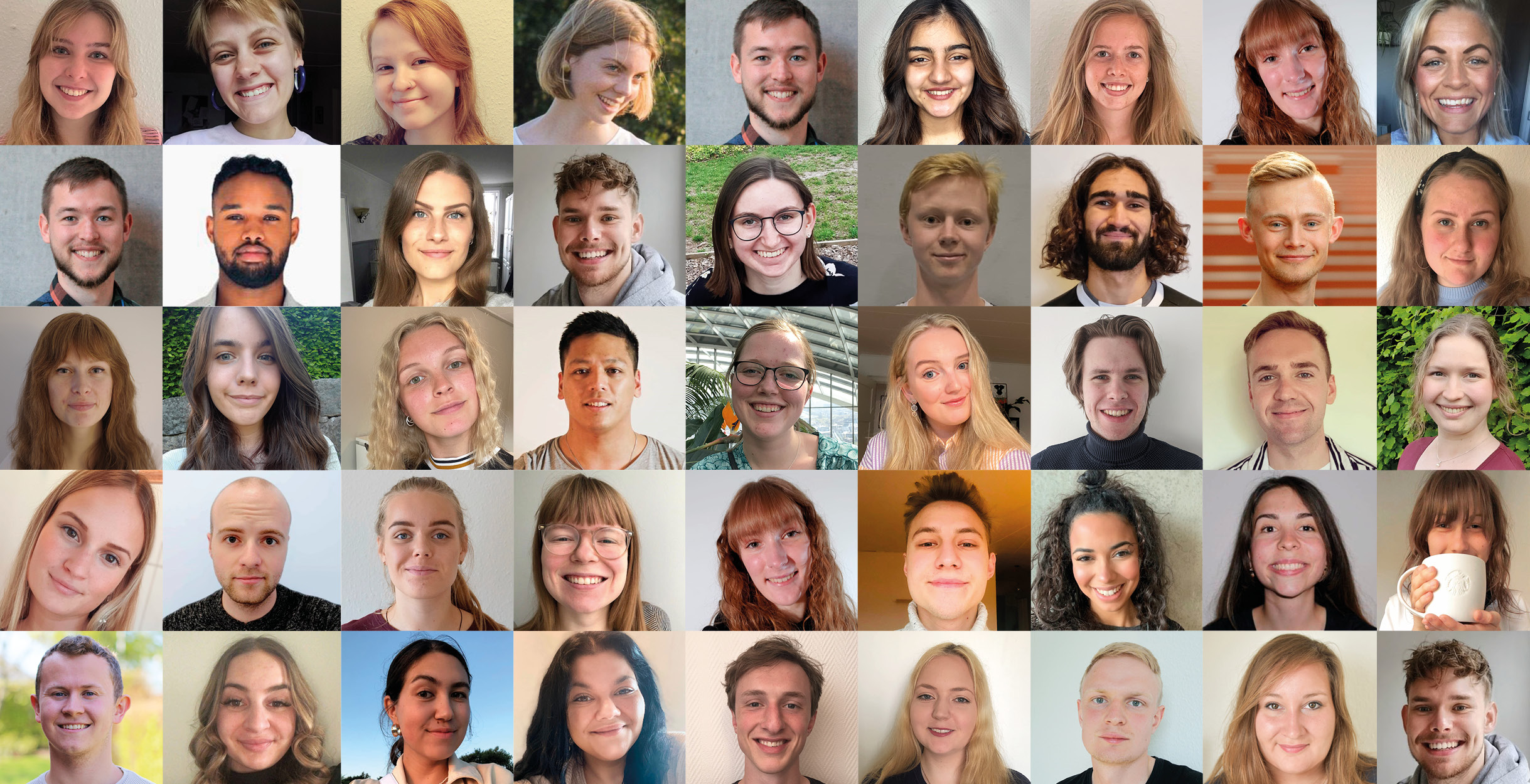Contribute to the green transition
Do you want to help ensure the future use of green energy? Then a degree in Energy Systems might be for you.
The energy sector is in the process of converting to renewable energy. The green transformation of the energy system is based on a complex interplay between energy technologies, economics, legislation, and digital technologies.
With a degree in Energy Systems, you will contribute to the green energy transition by developing an intelligent and efficient consumption of future resources. You will be able to optimise the use of existing and new energy technologies such as wind turbines, solar cells, heat pumps and fuel cells. This must be done in collaboration with the consumption-side, which in the future must be able to adapt to the varying sustainable production.
What will I learn?
With a bachelor's degree in Energy Systems, you will gain competencies that enable you to complete projects from the initial idea phase to its final documentation, be able to engage professionally in professional and interdisciplinary collaboration on development tasks, project work and dissemination, handle the energy system's complex issues in relation to technology, climate, economics, laws and rules, assess and choose from the scientific theories, methods and tools of energy technology and much more.
Among other things, you will gain knowledge about the digital transformation of the energy sector, smartgrids, microgrids, thermodynamics, mathematics, physics, storage and distribution of electricity, gas and district heating and the intelligent control of the consumer side of energy systems.
You will get an overview of the overall energy system, and you will learn about the most important energy components such as thermal power plants, wind turbines, solar cells, the electricity grid, the gas grid, the district heating grid, heat pumps, biogas and much more.
How is the programme structured?
The programme consists of a combination of theoretical courses and practical project work. Each semester is based on a main theme, which becomes the basis for the semester's theory and project work.
The first semester focuses on the entire energy system, from the extraction of natural forms of energy to the conversion of energy into energy services. In the second semester, the focus is on energy conversion and you will learn how the most important electricity and heat production technologies work. In the third semester, the focus is on electrical systems, and you will work with transmission, distribution, and the storage of electrical energy. In the fourth semester, the focus is on heat-based energy transmission systems. The fifth semester is all about innovation, entrepreneurship, and interdisciplinary skills, as well as energy and the outside world. You can also choose to study this semester abroad. In the sixth semester, you write your bachelor project, based on all your knowledge from the previous semesters.
Master's Degree
The bachelor's programme lasts three years, after which you take the two-year master's programme to achieve a MSc in Engineering. Here you will have the opportunity to continue specialising in Energy Technology or specialise in Energy Informatics: a profile where the focus is on the digital transformation of the energy sector.
Read more about the master's programme in Energy Systems.
What can I become?
The programme gives you several career opportunities - both in Denmark and abroad. You will typically work in high-tech companies or institutions that deal with research and/or development. You will be sought after by companies and organisations that work with sustainable energy. For example, you will be able to get jobs in district heating or the electricity supply sector, energy companies, consulting and sales companies within environmental solutions, consulting engineering companies, public agencies/authorities.
The majority of those with a MSc in Engineering work in research, development, and innovation.
That is why you should study...
- You will contribute to the green transition
- You will have good career opportunities
- You will learn how to develop innovative and green solutions



